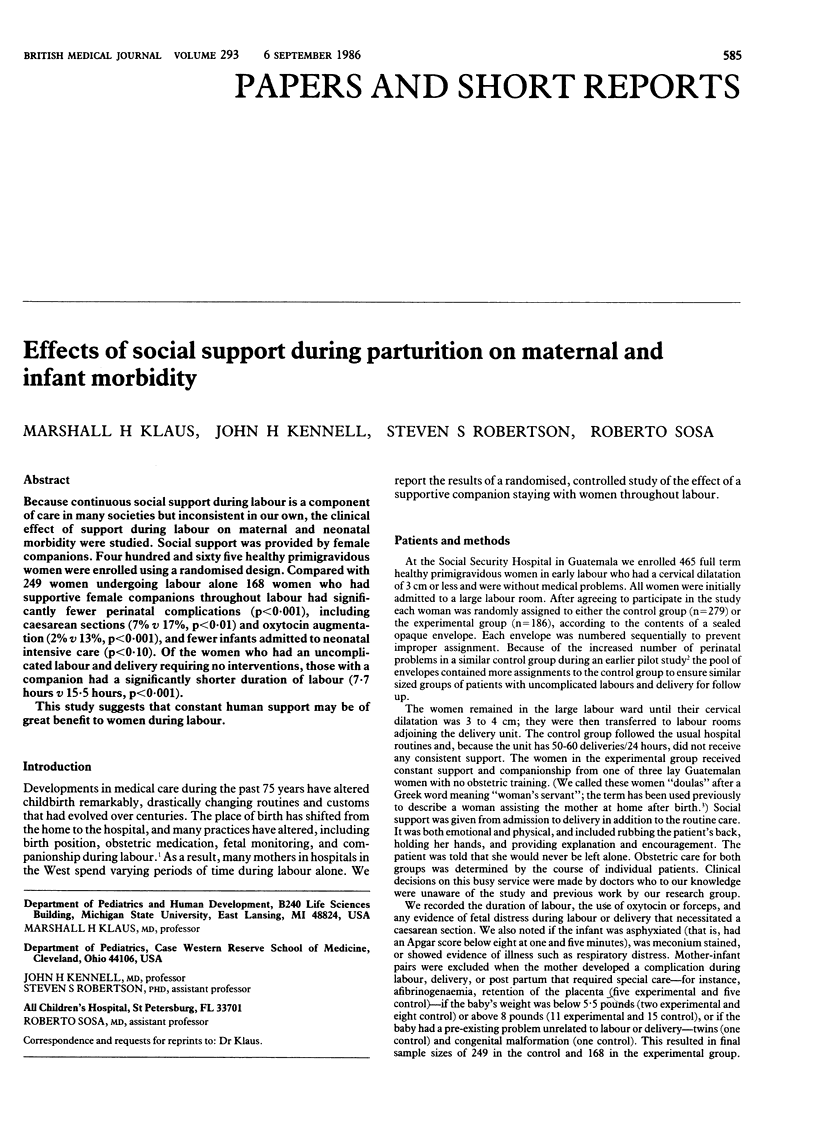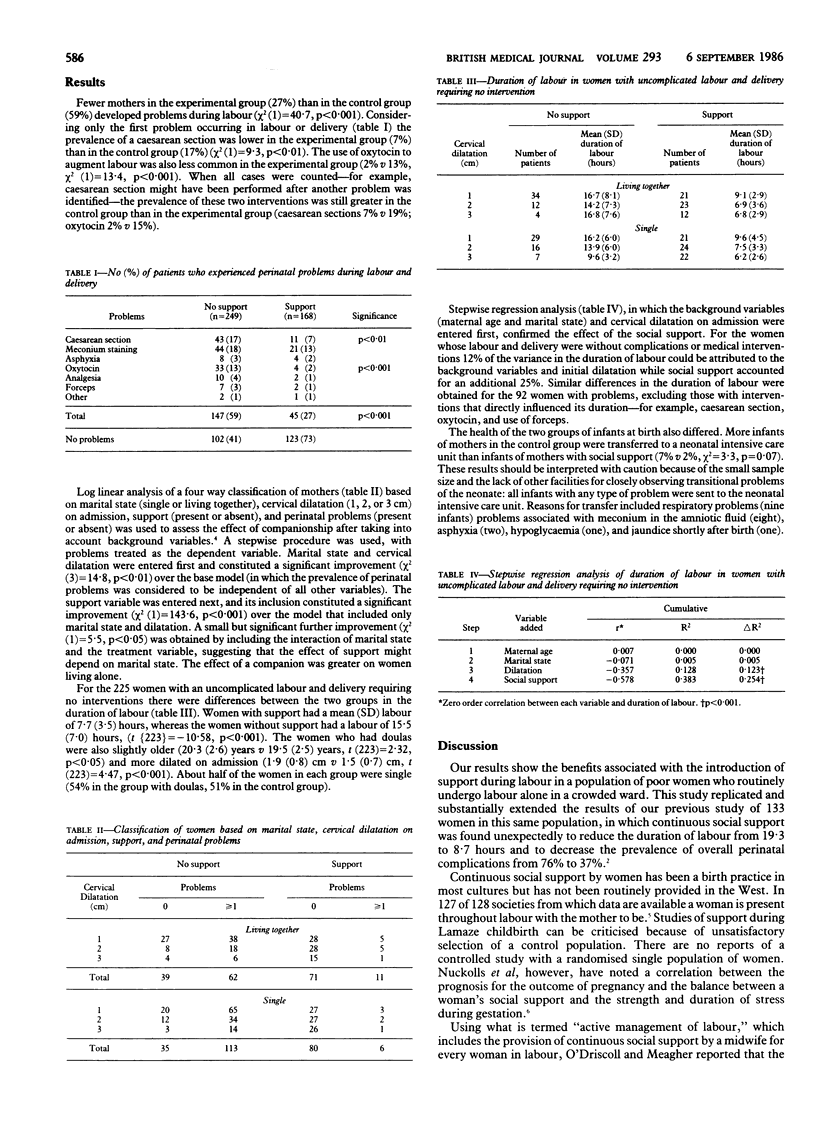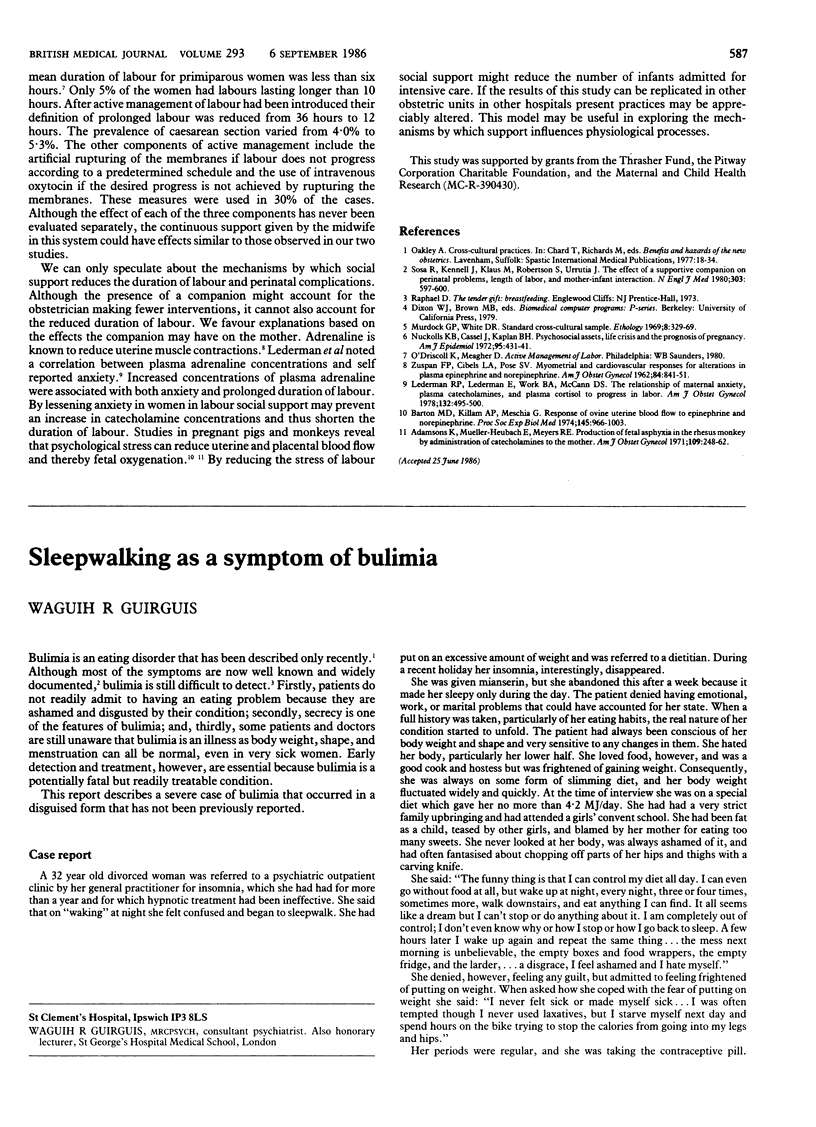Abstract
Because continuous social support during labour is a component of care in many societies but inconsistent in our own, the clinical effect of support during labour on maternal and neonatal morbidity were studied. Social support was provided by female companions. Four hundred and sixty five healthy primigravidous women were enrolled using a randomised design. Compared with 249 women undergoing labour alone 168 women who had supportive female companions throughout labour had significantly fewer perinatal complications (p less than 0.001), including caesarean sections (7% v 17%, p less than 0.01) and oxytocin augmentation (2% v 13%, p less than 0.001), and fewer infants admitted to neonatal intensive care (p less than 0.10). Of the women who had an uncomplicated labour and delivery requiring no interventions, those with a companion had a significantly shorter duration of labour (7.7 hours v 15.5 hours, p less than 0.001). This study suggests that constant human support may be of great benefit to women during labour.
Full text
PDF


Selected References
These references are in PubMed. This may not be the complete list of references from this article.
- Barton M. D., Killam A. P., Meschia G. Response of ovine uterine blood flow to epinephrine and norepinephrine. Proc Soc Exp Biol Med. 1974 Mar;145(3):996–1003. doi: 10.3181/00379727-145-37941. [DOI] [PubMed] [Google Scholar]
- Lederman R. P., Lederman E., Work B. A., Jr, McCann D. S. The relationship of maternal anxiety, plasma catecholamines, and plasma cortisol to progress in labor. Am J Obstet Gynecol. 1978 Nov 1;132(5):495–500. doi: 10.1016/0002-9378(78)90742-1. [DOI] [PubMed] [Google Scholar]
- Sosa R., Kennell J., Klaus M., Robertson S., Urrutia J. The effect of a supportive companion on perinatal problems, length of labor, and mother-infant interaction. N Engl J Med. 1980 Sep 11;303(11):597–600. doi: 10.1056/NEJM198009113031101. [DOI] [PubMed] [Google Scholar]


